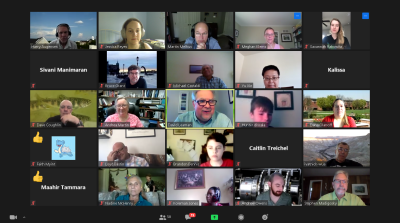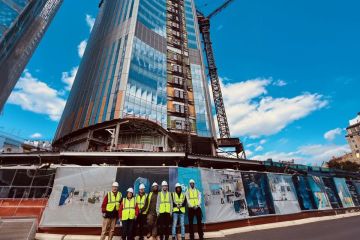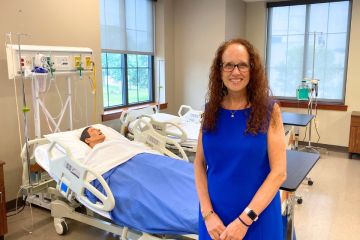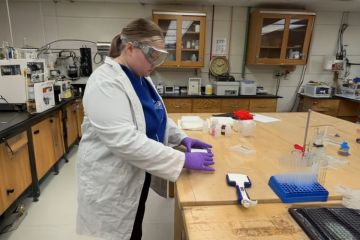Virtual Summer Camps Provide the Widener Advantage to Teens Worldwide

The coronavirus pandemic disrupted summer plans for many families, but Widener’s faculty – known for innovative teaching and rising to the occasion – stepped up to provide two unique, virtual camp experiences for middle- and high school-age students.
Going virtual this summer meant the science and computer science camps could bring the Widener advantage to even more young people from around the world at a time when many were missing their usual in-person summer activities.
“Widener’s science faculty have been dedicated to helping budding scientists explore diverse subjects and find their passion at our in-person camp for the last two summers,” said Professor of Physics and Astronomy Harry Augensen, who organized the science mini-camp. “We couldn’t imagine letting that opportunity pass by this summer and are proud to have provided a rewarding virtual camp experience.”
The Next Generation Scientists Mini-Camp, held July 27-31, drew 51 registrations from nearly a dozen states and six countries, including India, Egypt, Mexico, Kazakhstan, and Spain. The virtual camp reached four times more participants than the on-campus camps in previous years.
Similarly, the Next Generation Computer Scientist Mini-Camp, which was new this year, attracted 13 participants. The one-day mini-camp was scheduled for Aug. 3, and then was repeated on Aug. 4 thanks to the number of interested participants.
Many parents expressed their gratitude for Widener providing these opportunities free of charge. This was possible with financial support from the College of Arts & Sciences and in planning coordination with the Science Teaching Center.
“I can imagine the dedication that has gone into the planning, preparation, and execution to make this virtual camp a success, especially in the midst of COVID-19 hardship,” said Manimaran Govindarasu, whose daughter participated in the science camp. “My sincere thanks and appreciation to all the professors, coordinators, and staff for sharing their knowledge and goodwill. I am sure all the students will remember this camp for a long time to come.”
Both camps gave the participants the opportunity to connect virtually with the university’s faculty and students and explore diverse subject areas.
The main goal of the camp was to provide young people with a sampling or ‘buffet’ of the sciences. Whether or not they eventually decide to go into science as a career, they will hopefully maintain a lifelong love of science. - Professor Harry Augensen
At the science camp, campers spent their days with science and mathematics faculty on a virtual walking tour of Widener University’s Taylor Arboretum, making a DIY lava lamp to learn about the chemistry of soaps, learning about the mathematics behind encoding and decoding messages, and more.
They also met Widener students conducting summer research and joined an evening virtual stargazing session, which was attended by many of the parents and siblings of the campers.
“I especially enjoyed listening to the student research projects as they opened my eyes to the variety of possibilities that can come from following your passions in the science field,” said Sivani Manimaran, an 11th grade student from Ames, Iowa.
Another 11th grade student from Maywood, New Jersey said the camp provided her a valuable opportunity at a time when she was home due to COVID-19 closures.
“I wanted to learn more about science because I wish to pursue a career in science,” said Faith Cho Myint. “It was so much fun, and I hope it happens next year.”
The computer science camp allowed high school age participants to explore subjects at the frontier of computing technology.
“Students learned introductory web design, explored machine learning, and gained insight in computer security fields,” said Professor of Computer Science Yana Kortsarts, who organized the camp. “This was a unique opportunity for students to meet online with faculty who are professional computer scientists, and learn about the Computer Science and Digital Media Informatics programs at Widener.”
These types of experiences continue to show how Widener faculty are connecting globally and providing top-notch experiences, whether in-person or virtual, through the COVID-19 pandemic.




